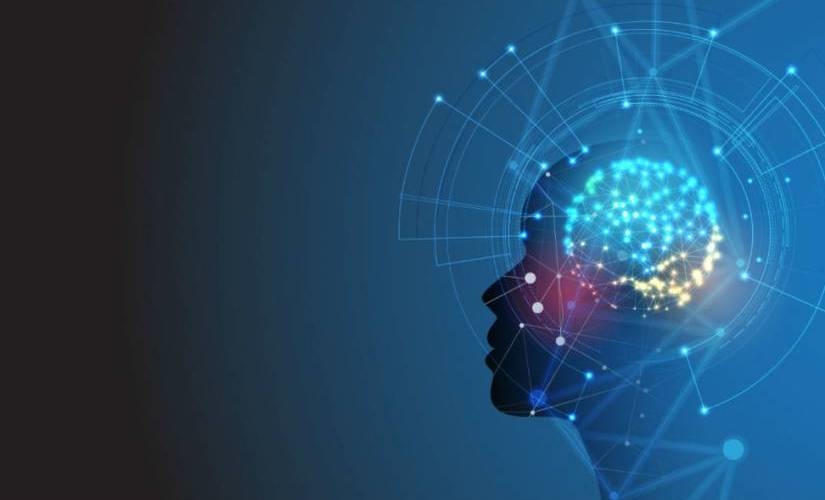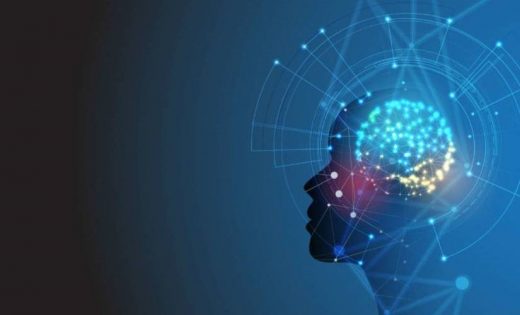Blockchain Supercharged with AI: The Next Revolution
Blockchain Supercharged with AI: The Next Revolution

In the last decade, Blockchain and Artificial Intelligence (AI) are among the rare developments in technology that is poised to become so disruptive that they’ve become synonymous with innovation and the future. Startups have begun aiming to bring an amalgamation of these technologies onboard and have raised a whopping $437 million to date(source). But what are these technologies and why are they so disruptive?
Blockchain technology was created by an anonymous figure known as Satoshi Nakamoto and is the underlying technology behind the sensational Bitcoin.
The Blockchain is a distributed ledger technology (DLT) that enables the storage of data securely and transparently. While cryptocurrencies have been taking the financial ecosystem by storm, blockchain has permeated into almost every industry sector imaginable, from Healthcare to Gaming. The technology is gaining momentum at an unprecedented pace, so much so that by 2023 the global blockchain market is expected to grow to $23 billion by 2023 (source).
Artificial Intelligence was first described by John McCarthy in 1956. This Artificial Intelligence (AI), is the ability of a machine/program to learn from its experiences, much like a conscious being does. In most cases, an AI system requires a vast amount of data to “learn” from its experiences and make a decision accordingly.
Even though the technology is still in its nascent stages, an excellent example of the capabilities of current AI technology is the array of virtual assistants available like from Tech giants like Google, Amazon and Apple. Similar to the blockchain, AI is making waves in scores of industry sectors by helping augment existing technologies by increasing its efficiency. The global AI market is expected to reach a whopping $190 billion by 2025 (source).
At first glance, blockchain and AI seem poles apart and they are. But recent developments in Big data has created a conducive environment for the amalgamation of these technologies.
The convergence of Blockchain and AI.
The most compelling motivation for combining blockchain and AI originates from the need to augment big data analytics. Big data analytics involves examining excessive amounts of data, often about customers, to unravel correlations between seemingly distinct data points that could provide insight into the dataset. In retrospect, big data analytics has commonly been used by enterprises to boost customer acquisition and retention, introducing targeted advertising and even improve risk management.
In simple terms, enterprises are looking to improve their profits by better understanding their customer base.
This corporate agenda would have been impossible today without the rise of social media platforms and the internet. On top of having access to the social media activity of users, companies often have access to shopping behavior, geographical information and even political preference for at least two billion people. But this data is often chaotic, vast and random.
This chaos is where AI kicks in. Artificially intelligent algorithms can be taught to draw meaningful insights from the hoard of data available. Where does Blockchain fit into all this?
How blockchain can help artificial Intelligence.
Artificial intelligence needs vast amounts of data to learn and make insightful decisions; blockchain becomes useful a novel way of storing data securely. As mentioned earlier, blockchain often boils down to being a distributed ledger technology, which means it creates a massive database of every transaction on the network. But unlike traditional data storage solutions like Amazon’s servers — which are centralized — blockchain networks are decentralized.
If a network is decentralized, it means that the blockchain stores data on a vast network of computers, which regularly verify the information with each other, making the data stored on the network immutable. In case a hacker gets into one computer and manipulates the data, the abnormality is often picked up by the other computers on the network, and the data manipulation made invalid.
On top of this, the data stored on blockchain is cryptographically secured meaning modifying the data is incredibly difficult.
Blockchain users can also check if the data stored on the network has been tampered with, by simultaneously cross-checking cryptographic signature of the data across all nodes (computers) on the network. This ability to curtail any modifications makes Blockchain an ideal solution to store highly sensitive data. The same can’t be said for our current networks and systems, which are often the victims of cyber hacks.
For example, In November last year, the Marriott hotel group revealed hackers stole the personal data of as much as 500 million of its guests. From these all too familiar scenarios of hacking thefts, we can conclude that blockchain will be a critical element in the advancement of AI systems and Big data analytics and solutions. But can AI be useful for blockchain?
How Artificial Intelligence can help blockchain.
AI systems could profoundly change the way we manage blockchain networks and make them more efficient. For example, while transferring Bitcoin to another peer on the same network, it often takes days to confirm the transaction. Ironically, this is inadvertently caused by blockchains decentralized nature as transactions facilitated on Bitcoin’s network is established by Bitcoin miners, who group these transactions into blocks.
Therefore an unprecedented increase in Bitcoin transactions could delay the confirmation time even further as ‘block’ sizes are limited, meaning transactions which exceed the capacity of a block will get queued for confirmation by Bitcoin miners.
Artificially intelligent systems could help bring down this cumbersome process by reducing the computing power needed to confirm these transactions. As the Hashing algorithms used to confirm transactions on a blockchain network often uses a “brute force” approach. An AI system could possibly be trained to improve these algorithms by providing it with the right data.
Top five startups in this niche space, according to funds raised($MM)
- Neuromation – $72 million
- Endor- $45 million
- Blockchain data foundation- $38 million
- Singularity.NET- $33 million
- Neurochain-$25 million
These are the top five startups, in terms of funds raised, looking to usher in a new era technology by combining Artificial Intelligence and Blockchain technology. Even though, by itself, funds raised is not a precise way to measure the success of a startup or for that matter the potential of a new market. It does provide conclusive evidence that investors are confident in the potential of combining these technologies and are willing to pledge top-dollar to some startups in this realm.
Therefore even though Blockchain technology and Artificially intelligent systems already garner tremendous potential for revolutionizing many industry sectors. But an amalgamation of both could be the advent of a new era of technology, one that will bring growth to various industries on an unprecedented level.
The post Blockchain Supercharged with AI: The Next Revolution appeared first on ReadWrite.
(41)


